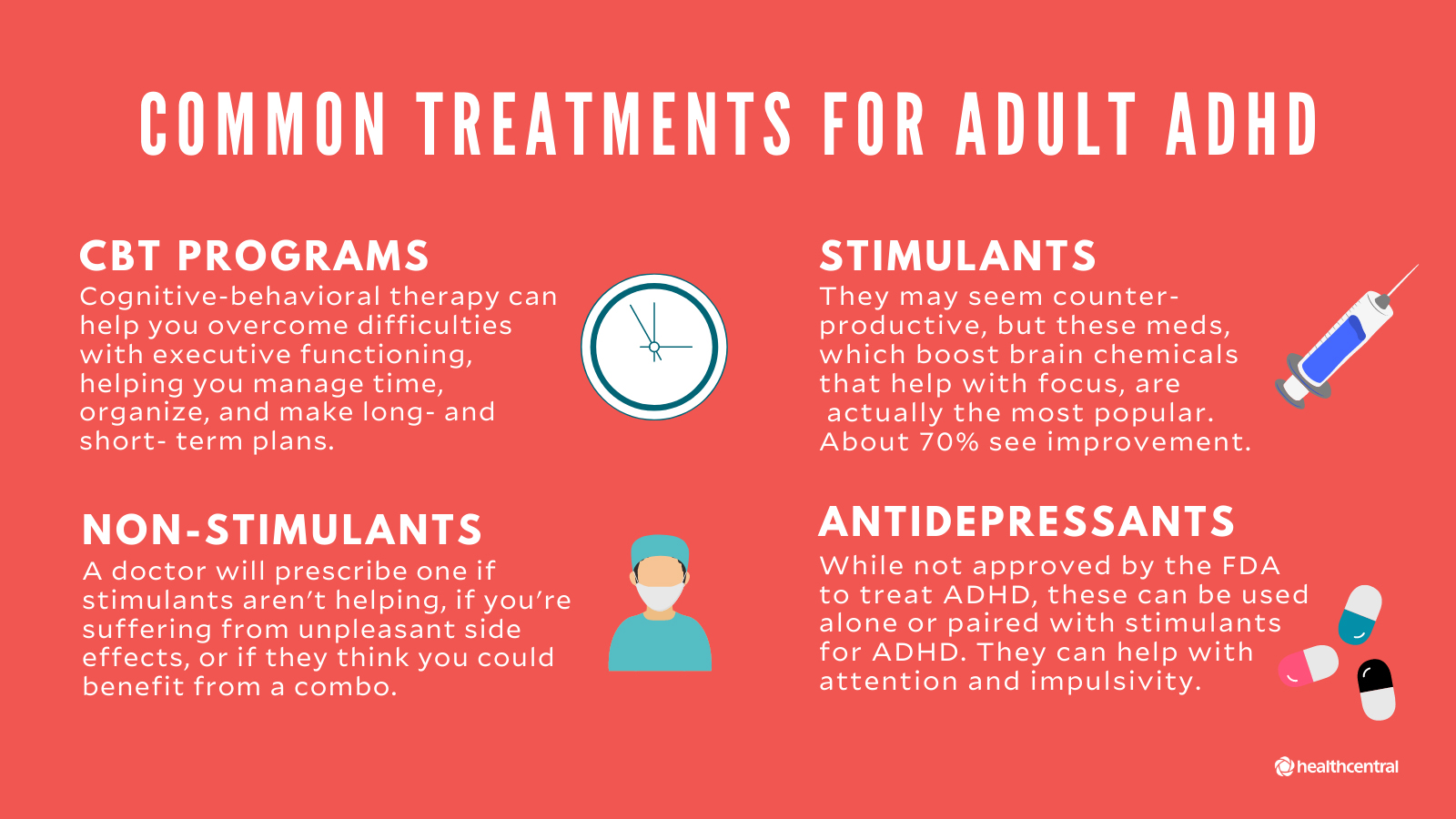The Advantages of Customized ADHD Therapy Plans for Better Outcomes
The implementation of personalized ADHD treatment strategies has actually emerged as a crucial strategy in improving therapeutic results for people affected by this problem (ADHD treatment). By acknowledging the distinct indications of ADHD in each individual, these customized interventions advertise better interaction and motivation, inevitably leading to much more efficient coping approaches.
Understanding ADHD Irregularity
Although Attention-Deficit/Hyperactivity Problem (ADHD) is usually viewed as a single condition, its indications can differ significantly among individuals. This variability is affected by a variety of aspects, consisting of age, gender, coexisting conditions, and ecological contexts. For instance, kids with ADHD may display hyperactive actions, while adults may mostly battle with attention deficiencies. Sex distinctions likewise play a function, as males are much more frequently identified with ADHD and typically show a lot more obvious signs, whereas women might present with less noticeable inattentiveness.
Moreover, people with ADHD may experience a spectrum of emotional and behavioral obstacles, such as anxiety or opposite defiance, that can complicate medical diagnosis and therapy. It is also worth noting that ADHD can present in a different way throughout different social contexts, affecting exactly how signs are acknowledged and dealt with.
Secret Parts of Personalization
Personalized ADHD therapy plans are based in a number of crucial elements that guarantee effective management of the problem. An extensive assessment is important, entailing standardized rating ranges, meetings, and behavioral observations. This thorough examination permits medical professionals to recognize the individual's special symptoms, staminas, and obstacles.
2nd, the participation of multiple stakeholders, consisting of moms and dads, teachers, and the person, adds to a holistic view of the person's requirements. Collaboration promotes a helpful atmosphere that can adapt to the individual's context and lifestyle.
Third, therapy plans ought to be flexible and adaptable, enabling for adjustments based upon ongoing feedback and the person's advancing requirements. This flexibility allows the assimilation of different therapeutic strategies, such as behavior treatments, psychoeducation, and medicine management.
Additionally, social and contextual variables need to be thought about. Identifying the person's background, worths, and choices makes certain that the therapy is relevant and respectful.
Finally, normal follow-ups and analyses are important to keep an eye on development and make essential modifications. By concentrating on these essential components, individualized ADHD treatment plans can significantly enhance the efficiency of treatments, resulting in improved results for people with ADHD.
Enhanced Interaction and Inspiration
To efficiently promote enhanced engagement and motivation in people with ADHD, it is vital to integrate techniques that resonate with their passions and toughness. Customized therapy plans that line up with an individual's interests can lead to increased involvement in therapeutic activities, promoting a sense of ownership and interest for the process.
Using interactive and innovative techniques can also considerably improve motivation. Incorporating gamification components or real-world applications of skills can make jobs more appealing and appropriate. This not only captures interest yet also strengthens finding out through delightful experiences.
Furthermore, establishing achievable and purposeful objectives tailored to the person can boost inspiration. When individuals see their development towards directly considerable objectives, they are more probable to remain engaged. Normal feedback and acknowledgment of accomplishments can additionally suffer motivation, developing a favorable feedback loop that urges ongoing initiative.
Lastly, promoting a helpful atmosphere where people really feel understood and valued can significantly influence their interaction degrees. When treatment strategies are established collaboratively, integrating input from the individual, they are a lot more most likely to feel spent in their journey, ultimately resulting in improved results in managing ADHD.
Improved Coping Techniques
Developing improved dealing strategies is vital for people with ADHD, as it furnishes them with efficient tools to browse daily challenges. A tailored treatment plan enables the recognition of certain coping devices customized to the person's special needs and circumstances - ADHD treatment. Methods such as mindfulness, time monitoring abilities, and organizational methods can be integrated into everyday routines, promoting a sense of control and reducing anxiety
Mindfulness methods, including reflection and deep-breathing workouts, aid people with ADHD concentrate their focus and manage their feelings. Time administration approaches, such as using timers or breaking jobs into smaller, workable steps, can reduce sensations of overwhelm. Additionally, organizational devices like organizers and checklists can enhance performance and accountability.
Long-lasting Favorable Outcomes
Applying individualized ADHD therapy plans can lead to substantial long-term positive results for individuals. These customized methods, which take into consideration unique signs and symptoms, preferences, and life circumstances, facilitate more reliable management of ADHD signs in time. By concentrating on the specific demands of the person, Medication Management these strategies improve adherence to treatment protocols and foster higher interaction in healing activities.
:max_bytes(150000):strip_icc()/adhd-treatment-4157278_FINAL-848b0cfc4d0b42a0b66c3d2ca894e9dd.png)
Additionally, customized treatment plans can significantly reduce the threat of comorbid problems, such as stress and anxiety and clinical depression, which are usually related to ADHD. Early treatment and regular assistance aid people construct strength and coping techniques, promoting general mental health and wellness.
Ultimately, the long-term favorable results of individualized ADHD therapy intends not only enhance the lifestyle for people yet also contribute to their general wellness and success in different life domain names. This alternative method underscores the relevance of personalized treatment in taking care of ADHD effectively.
Conclusion
